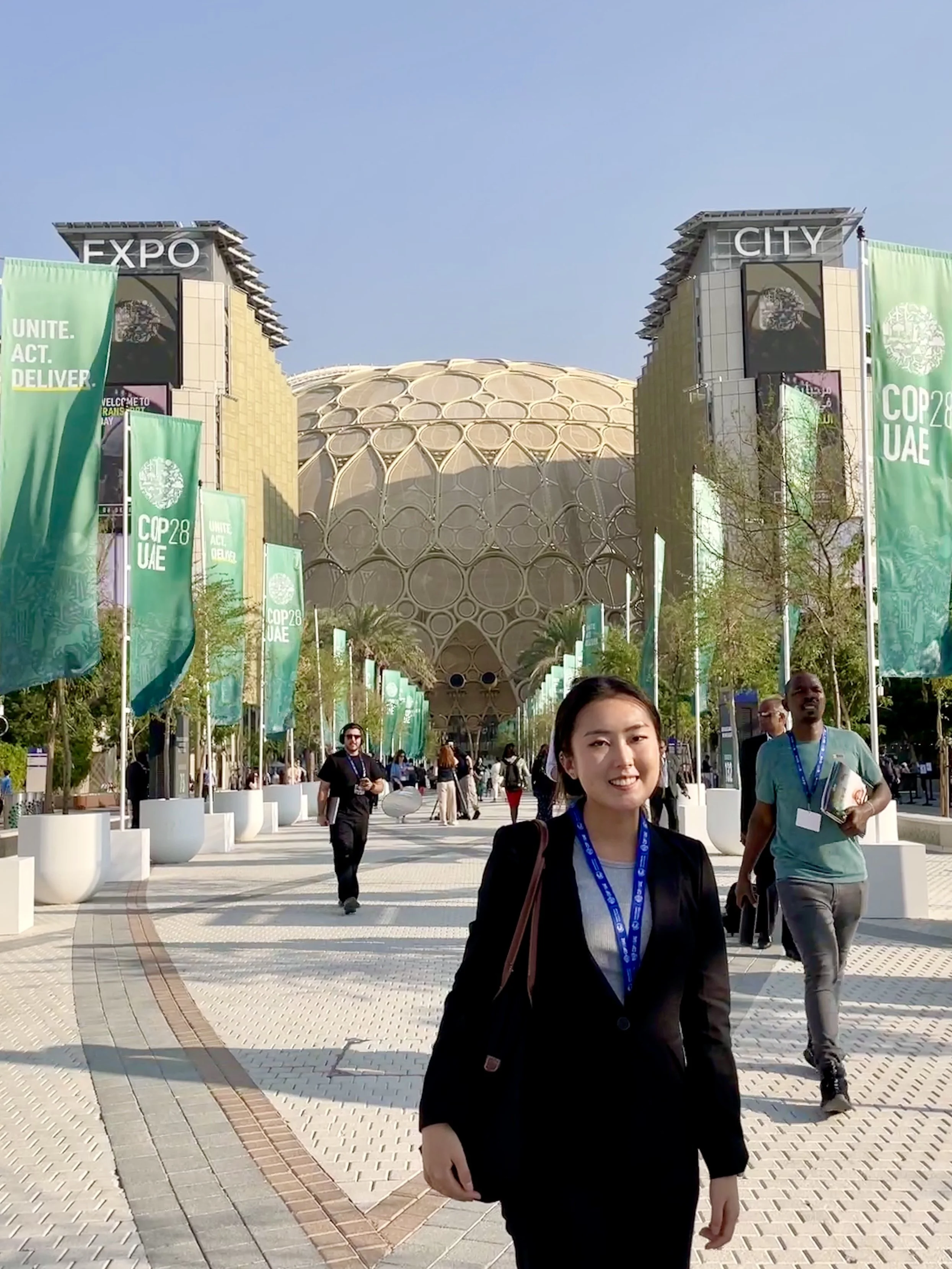Reflections from COP28: Unite, Act, and Deliver.
I recently traveled to Dubai, United Arab Emirates, where I joined roughly 80,000 people for the largest climate conference ever: COP28. Since its inception following the 1992 UN climate accord, the annual Conference of the Parties (COP) has been at the center of global negotiations and policy-making to limit temperature rise and adapt to climate change impacts.
This year’s COP was held in Expo City, where futuristic architecture emerges strikingly from the desert sands. Navigating the labyrinth of pavilions and participating in discussions at COP28 was both daunting and exhilarating. Under the beating sun of Dubai, heated discussions unfolded tirelessly, both within the negotiation rooms and beyond, continuing day and night.
During the COP, I had the opportunity to reconnect with my former colleagues from the International Renewable Energy Agency (IRENA) and the International Institute for Advanced Systems Analysis (IIASA). IRENA spearheaded the landmark pledge to triple renewable energy capacity and double energy efficiency by 2030. IIASA delivered actionable and evidence-based insights on their latest research in city transformation, air pollution, and artificial intelligence.
Hanbit at COP28 held in Dubai, United Arab Emirates
COP28 saw a significant presence of scholars from Oxford, including those from the Net Zero Institute, the Smith School, and two of my coursemates who were part of the Ghanaian and Ukrainian delegations. It was also inspiring to see professors, with whom I had the privilege of learning, lead debates and urge action. Professor Myles Allen, the scientist behind the term 'NetZero', took a central role in the debate on carbon capture and storage, highlighting its necessity in achieving our climate objectives.
The most impactful moment for me was attending the people's plenary, which brought the human perspective to the forefront of the conference. The words of Tom B.K. Goldtooth, the Executive Director of the Indigenous Environmental Network, were particularly resonant: "Climate change is a matter of life and death, as Indigenous people are in all regions." The panel emphasized the importance of recognizing Indigenous people’s rights for sustainable development, critiquing government inaction in the face of fossil fuel expansion, and underscoring the importance of embracing Indigenous knowledge and adaptations. As an energy systems modeler, I often get immersed in the theoretical aspects of climate models and projections, losing sight of the tangible, real-life stories of individuals and communities. This session was a powerful reminder of the continuous struggle for justice—voices that are often sidelined in global dialogues but echoed powerfully through the halls of the conference.
The spirit of COP28 was one of cautious optimism. While acknowledging the long road ahead, there was a palpable sense of momentum—a collective understanding that the time for decisive action is now. Over 170 announcements were made between pledges, declarations, publications, reports, and initiatives. Historic and landmark pledges and negotiations were made, two of which were noteworthy: the global agreement to transition away from fossil fuels and the operationalization of the Loss and Damage Fund.
Yet, the conference had its shortcomings. Quantified global adaptation targets, crucial for countries in the global south, failed to reach a consensus. This gap may hinder the engagement between developing and developed nations on crucial aspects of implementation, such as finance, technology transfer, and capacity building. Moreover, the agreed language on transitioning from fossil fuels, although significant, fell short of the more decisive "phase-out" that many advocates had sought.
The true measure of progress lies not in the declarations and pledges of COP but in the tangible actions of governments, businesses, universities, and individuals. Returning with a renewed sense of purpose, I am reminded that, while individual efforts are crucial, collective action is essential for a transition of this magnitude. Beyond COP, we must unite, act, and deliver.


